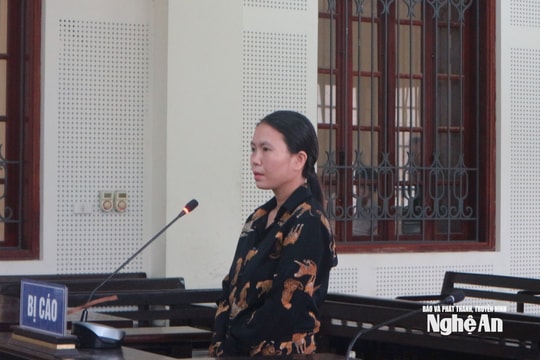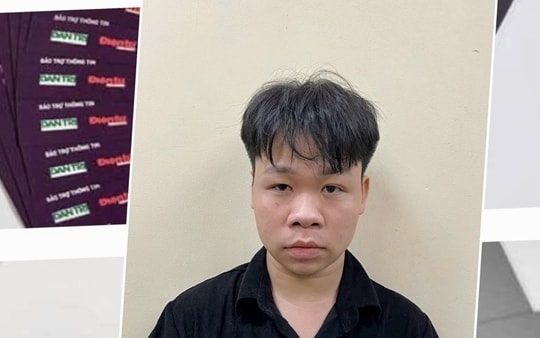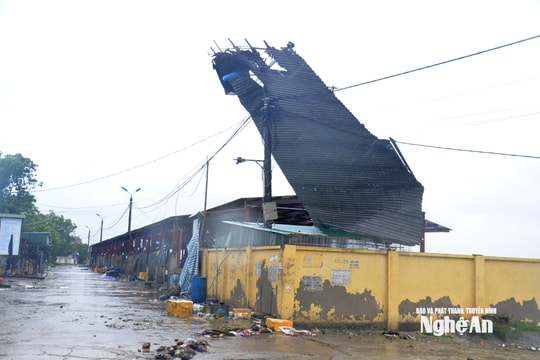National Assembly Delegate: Court ordered to recover 600 billion, discovered only 5 billion left
(Baonghean.vn) - Participating in the discussion on the Draft Law on Anti-Corruption (amended), delegate Hoang Thi Thu Trang said that recovering corrupt assets is difficult, many cases are really at a standstill.
On November 9, in the discussion session at Group 18 (including delegations from Nghe An, Bac Ninh, Tra Vinh provinces), chaired by delegate Nguyen Dac Vinh - Member of the Party Central Committee, Secretary of the Provincial Party Committee, Head of the National Assembly Delegation of Nghe An province, delegates discussed the Draft Law on Anti-Corruption (amended). Most delegates focused on discussing the subjects and obligations to declare assets and income; In addition, delegates also expressed concern that the confiscation of corrupt assets is only a very modest number compared to the amount of corrupt assets.
Delegate Tran Van Mao - Deputy Head of the National Assembly Delegation of Nghe An said: Regarding the subjects of asset and income declaration (Article 41), the declaration of assets and income in the past was still formal, ineffective, and did not control the assets and income of people with positions and powers. The main reason for this situation is that the number of people required to declare assets and income is too large, exceeding the capacity of the agencies responsible for controlling the declaration of assets and income. Therefore, the expansion of the subjects of declaration must also be considered to ensure feasibility, especially for those appointed to the civil service.
Therefore, it is recommended that in the immediate future, the subjects of asset and income declaration should remain the same or be narrowed down to a reasonable level, focusing on subjects holding important positions at the central and local levels, and areas at high risk of corruption.
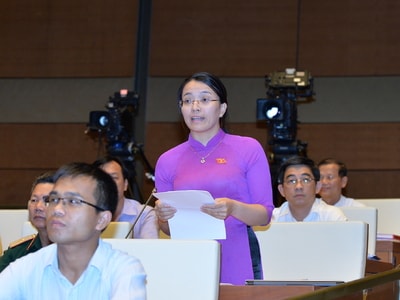 |
| Delegate Hoang Thi Thu Trang during a discussion in the hall. Photo: Archive |
Delegate Hoang Thi Thu Trang - Director of the Nghe An Judgment Enforcement Department said that in the Draft Law on Anti-Corruption (amended), there are two provisions that are not highly feasible and need to be reviewed to avoid formality. In Clause 1, Article 36, people with positions and powers must pay and receive payment through their accounts for all expenses worth VND 20 million or more. Meanwhile, when people with positions go to buy, the seller does not know that person has a position, so they cannot request payment through their accounts, or ask relatives to buy. Thus, this provision is correct but in reality it cannot be implemented. It is recommended that research be done to find other ways to regulate it, otherwise it will be a formality.
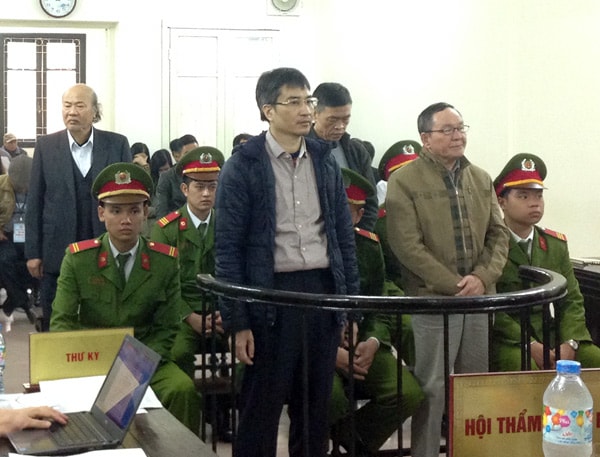 |
| In the Vinashinlines trial, defendant Giang Kim Dat was proposed to be sentenced to death. Photo: Archive. |
Recovering corrupt assets is a deadlock for civil enforcement agencies. The court's verdict to recover a large amount of assets, but when the enforcement agency goes to recover them, there is none. For example, in recent major cases such as the case of Mr. Pham Thanh Binh of Vinashin, the court announced the recovery of 600 billion, but only 5 billion was discovered. The enforcement agency put the remaining amount on the list of those who are not eligible for enforcement.
In reality, the person executing the judgment has gone to jail, so it is very difficult to recover the 595 billion. Many voters and public opinion want us to have very specific regulations on the seizure and recovery of corrupt assets. I see that this draft does not have any specific measures. According to the report of the Government Inspectorate in 10 years of implementing the Law on Anti-Corruption, the amount of damage was 59 trillion, but in reality, more than 4 trillion was collected, the remaining 55 trillion could not be recovered.
PV-CTV




